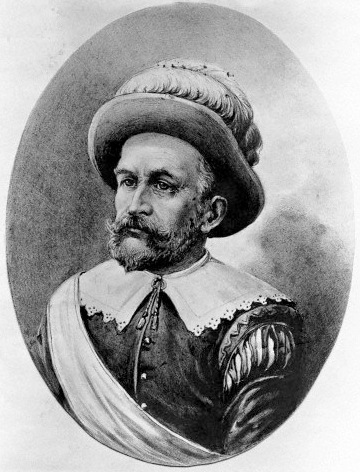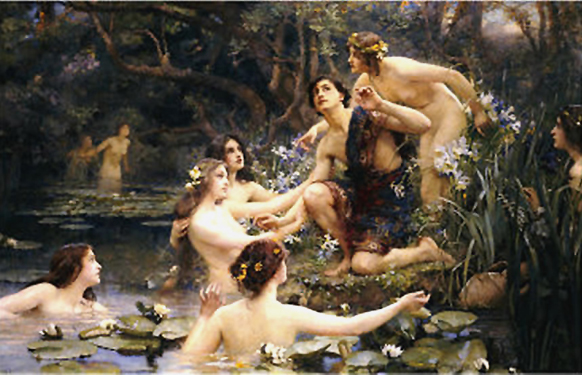|
Laurence Urdang
Laurence Urdang (March 21, 1927 – August 21, 2008) was a lexicographer, editor and author noted for first computerising the unabridged ''Random House Dictionary of the English Language'', published in 1966. He was also the founding editor of ''Verbatim'', a quarterly newsletter on language. Urdang was born in Manhattan and graduated from the Fieldston School in The Bronx. He then entered the Naval Reserve at the end of World War II. Educated at Columbia University (where he restricted himself to Russian, German, Latin, Greek, Sanskrit and Polish), Urdang was a linguistics lecturer at New York University from 1956 to 1961. Although he never wrote the dissertation that would have completed his graduate degree, the ''Random House Dictionary'' filled the void amply: "He always said he considered the Random House dictionary his dissertation," said Nicole Urdang.Quoted in Weber 2008. Urdang made his debut in the publishing industry as an associate editor in the dictionary de ... [...More Info...] [...Related Items...] OR: [Wikipedia] [Google] [Baidu] |
Manhattan, New York City
Manhattan (), known regionally as the City, is the most densely populated and geographically smallest of the five Boroughs of New York City, boroughs of New York City. The borough is also coextensive with New York County, one of the List of counties in New York, original counties of the U.S. state of New York (state), New York. Located near the southern tip of New York State, Manhattan is based in the Eastern Time Zone and constitutes both the geographical and demographic center of the Northeast megalopolis and the urban core of the New York metropolitan area, the largest metropolitan area in the world by urban area, urban landmass. Over 58 million people live within 250 miles of Manhattan, which serves as New York City’s economic and administrative center, cultural identifier, and the city’s historical birthplace. Manhattan has been described as the cultural, financial, Media in New York City, media, and show business, entertainment capital of the world, is considered a saf ... [...More Info...] [...Related Items...] OR: [Wikipedia] [Google] [Baidu] |
Dictionary
A dictionary is a listing of lexemes from the lexicon of one or more specific languages, often arranged alphabetically (or by radical and stroke for ideographic languages), which may include information on definitions, usage, etymologies, pronunciations, translation, etc.Webster's New World College Dictionary, Fourth Edition, 2002 It is a lexicographical reference that shows inter-relationships among the data. A broad distinction is made between general and specialized dictionaries. Specialized dictionaries include words in specialist fields, rather than a complete range of words in the language. Lexical items that describe concepts in specific fields are usually called terms instead of words, although there is no consensus whether lexicology and terminology are two different fields of study. In theory, general dictionaries are supposed to be semasiological, mapping word to definition, while specialized dictionaries are supposed to be onomasiological, first identifying ... [...More Info...] [...Related Items...] OR: [Wikipedia] [Google] [Baidu] |
Orexis
''Lycoris'' is a genus of 13–20 species of flowering plants in the family Amaryllidaceae, subfamily Amaryllidoideae. They are native to eastern and southern Asia in China, Japan, southern Korea, northern Vietnam, northern Laos, northern Thailand, northern Burma, Nepal, northern Pakistan, Afghanistan, and eastern Iran. They were imported into North Carolina and now grow wild. In English they are also called hurricane lilies or cluster amaryllis. The genus shares the English name spider lily with two other related genera.What is the Genus ''Lycoris''?TaxonomyFlora of China''Lycoris''石蒜属 shi suan shuGermplasm Resources Information Network''Lycoris'' They are bulb-producing perennial plants. The leaves are long and slender, 30–60 cm long and only 0.5–2 cm broad. The scape is erect, 30–70 cm tall, bearing a terminal umbel of four to eight flowers, which can be white, yellow, orange, or red. The flowers divide into two types, those with very long, filam ... [...More Info...] [...Related Items...] OR: [Wikipedia] [Google] [Baidu] |
Sophrosyne
Sophrosyne ( el, σωφροσύνη) is an ancient Greek concept of an ideal of excellence of character and soundness of mind, which when combined in one well-balanced individual leads to other qualities, such as temperance, moderation, prudence, purity, decorum, and self-control. An adjectival form is "sophron." It is similar to the concepts of '' zhōngyōng'' (中庸) of Chinese Confucianism and ''sattva'' () of Indian thought. Ancient Greek literature In Ancient Greek literature, sophrosyne is considered an important quality and is sometimes expressed in opposition to the concept of hubris. A noted example of this occurs in Homer's ''The Iliad''. When Agamemnon decides to take the queen Briseis away from Achilles, it is seen as Agamemnon behaving with hubris and lacking sophrosyne.North, Helen. 1966. ' (''Cornell Studies in Classical Philology'' 35). Ithaca: Cornell University Press. . . In Homer's ''Odyssey'', Odysseus avoids being turned by Circe the enchantress into an ... [...More Info...] [...Related Items...] OR: [Wikipedia] [Google] [Baidu] |
Gemeinschaft And Gesellschaft
''Gemeinschaft'' () and ''Gesellschaft'' (), generally translated as "community and society", are categories which were used by the German sociologist Ferdinand Tönnies in order to categorize social relationships into two types. The Gesellschaft is associated with modern society and rational self-interest, which weakens the traditional bonds of family and local community that typify the Gemeinschaft. Max Weber, a founding figure in sociology, also wrote extensively about the relationship between ''Gemeinschaft'' and ''Gesellschaft''. Weber wrote in direct response to Tönnies. ''Gemeinschaft''–''Gesellschaft'' dichotomy According to the dichotomy, social ties can be categorized, on one hand, as belonging to personal social interactions, and the roles, values, and beliefs based on such interactions (''Gemeinschaft'', German, commonly translated as "community"), or on the other hand as belonging to indirect interactions, impersonal roles, formal values, and beliefs based on such ... [...More Info...] [...Related Items...] OR: [Wikipedia] [Google] [Baidu] |
Sesquipedalian
{{Short pages monitor ... [...More Info...] [...Related Items...] OR: [Wikipedia] [Google] [Baidu] |
Enchiridion
Enchiridion is a small manual or handbook. It can refer more specifically to: * ''Enchiridion of Epictetus'', a short manual of Stoic ethical advice * The ''Enchiridion de metris'' of Hephaestion, an ancient treatise on poetic meters * ''Enchiridion'' of Sextus Pomponius, a 2nd-century collection of Roman law * '' Enchiridion on Faith, Hope and Love'' by Augustine of Hippo, a compact treatise on Christian piety (420) * ''Enchiridion'' of Byrhtferth (c. 970 – c. 1020) * The ''Enchiridion militis Christiani'' of Erasmus (1501) * ''Erfurt Enchiridion'', an early Lutheran hymnal (1524) * ''Enchiridion'' (Dirk Philips), (1564) * ''Enchiridion symbolorum, definitionum et declarationum de rebus fidei et morum'', an 1854 compendium of basic texts of Catholic dogma and morality * ''Enchiridion Indulgentiarum'', a Catholic manual of indulgences See also * "The Enchiridion! "The Enchiridion!" is the fifth episode of the first season of the American animated television series ''Adventure ... [...More Info...] [...Related Items...] OR: [Wikipedia] [Google] [Baidu] |
Haecceity
Haecceity (; from the Latin ''haecceitas'', which translates as "thisness") is a term from medieval scholastic philosophy, first coined by followers of Duns Scotus to denote a concept that he seems to have originated: the irreducible determination of a thing that makes it ''this particular'' thing. Haecceity is a person's or object's thisness, the individualising difference between the concept "a man" and the concept "Socrates" (''i.e.'', a specific person). In modern philosophy of physics, it is sometimes referred to as primitive thisness. Etymology Haecceity is a Latin neologism formed as an abstract noun derived from the demonstrative pronoun "haec(ce)", meaning "this (very)" (feminine singular) or "these (very)" (feminine or neuter plural). It is apparently formed on the model of another (much older) neologism, viz. "qui(d)ditas" ("whatness"), which is a calque of Aristotle's Greek ''to ti esti'' (τὸ τί ἐστι) or "the what (it) is." Haecceity vs. quiddity Haecceity may ... [...More Info...] [...Related Items...] OR: [Wikipedia] [Google] [Baidu] |
Nullifidian
{{Short pages monitor ... [...More Info...] [...Related Items...] OR: [Wikipedia] [Google] [Baidu] |
Nympholepsy
Nympholepsy is the belief of the ancient Greeks that individuals could be possessed by the nymphs. Individuals who considered themselves nympholepts would display a great religious devotion to the nymphs. An example is Archedemos of Thera, who built the sanctuary of the nymphs in the Vari Cave northeast of Attica, Greece. Etymology Nympholepsy, a term first used in 1775 by Richard Chandler in Travels in Greece, is described as “frenzy or rapture hat wassupposed to take hold of a man upon gazing on a nymph”. It originates from the Greek word ''nymphe'', meaning “bride”, “beautiful young woman”, then “semi-divine being in the form of a beautiful maiden”, and epilepsy, from the Greek word ''epilepsis'', meaning “a seizure”. Though the root of nympholepsy implies a fit or seizure, according to Socrates, as presented in the writings of Plato, a person could experience nympholepsy without any “tearing of clothes, the biting of lips, or convulsions, or frenzies”. ... [...More Info...] [...Related Items...] OR: [Wikipedia] [Google] [Baidu] |


